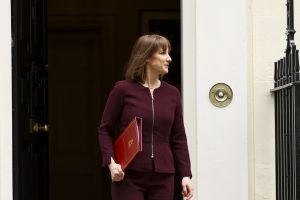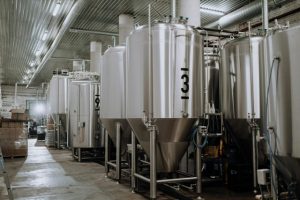Budget: At a glance

Economy:
The economy shrank by almost 10% last year and will be 3% smaller in five years than it would have been.
The UK’s national debt has reached its highest level since 1963.
Since March, 700,000 people have lost their jobs while the economy has seen its biggest fall in 200 years.
The government has borrowed £355bn this year (17% of national income, the highest level of borrowing since World War Two) and next year this is expected to be £234bn – 10.3% of GDP.
Total fiscal support over this year and next amounts to £407bn.
The OBR is now forecasting a “swifter and more sustained recovery” than it expected.
The economy will return to pre-Covid level by the middle of next year, it is predicted.
The OBR forecast that the economy will grow this year by 4%, by 7.3% in 2022, then 1.7%, 1.6% and 1.7% in the last three years of the forecast.
Jobs:
The furlough scheme, which had been due to close at the end of April, will be extended until the end of September.
The Coronavirus Job Retention Scheme applies across the UK. It covers up to 80% of an employee’s salary, up to a maximum of £2,500 per month.
After July, businesses will be asked for a 10% contribution, rising to 20% in August and September.
The National Living Wage will rise to £8.91 from April.
Bounce-back and other coronavirus loans for businesses will be replaced by a recovery loan scheme.
Incentive payments for hiring new apprentices doubled to £3,000.
Self employed:
Support for the self-employed will also be extended until the end of September – with 600,000 more people eligible – eg: those who only became self-employed last year now entitled to claim the fourth and fifth grants
Business Rates:
The business rates holiday will be extended until the end of June.
The 5% reduced rate of VAT will be extended for six months to the end of September followed by interim rate of 12.5% for another six months.
Tax:
Corporation tax will increase to 25% in 2023.
Small Profits Rate to be created, ensuring only businesses with profits of over £250,000 will be taxed at the 25% rate.
Income tax: Threshold for paying the basic rate will rise to £12,570 next year.
Threshold will be £50,270 for higher rate payers.
Hospitality/leisure
Non-essential retail businesses – grants of up to £6,000 per premises.
Hospitality and leisure businesses – grants of up to £18,000.
Sporting, cultural and arts organisations will get £700m to help them reopen.
Other:
A further £1.6bn in funding to continue roll out of coronavirus vaccines.
Stamp duty holiday extended to the end of June. New mortgage guarantee scheme means first time buyers will only need a 5% deposit.
New ‘UK Infrastructure Bank’ to be based in Leeds.
Eight freeports announced for: East Midlands Airport, Felixstowe and Harwich, Humber, Liverpool City Region, Plymouth, Solent, Thames and Teesside.
The limit on a single payment using contactless card technology will rise to £100 later this year. The limit was raised from £30 to £45 less than a year ago.
Planned increases in duties for spirits, wine, cider and beer will be cancelled.
Fuel duty also frozen.









